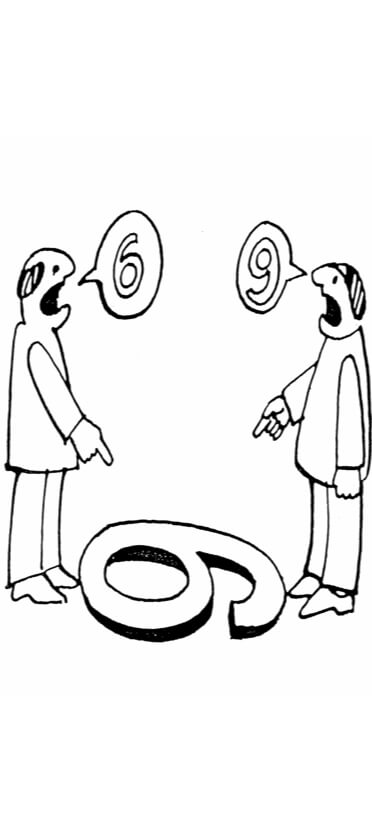December 12, 2018
Living in the Grey: How Can We Differentiate Between Black/White and Grey Communication?
As we saw in the first installment of this series, The Grey is an area of uncertainty but it’s also an area that requires subtlety, compassion, and understanding. In part two, I’d like to explore how a lack of these qualities has pushed us to our current state of communication: divided, hostile, and lacking openness.
It doesn’t take much effort to find examples of divided or ‘black and white’ communication going on these days. There are obvious places where the back and forth has always been testy, such as between political parties or sports team fan bases, but even these arenas are becoming increasingly polarized, with hostility and disrespect reaching an all-time high.
Let’s take a look at an example of this kind of communication, in order to lock down this abstract notion of ‘black and white.’
John: Who do you want to win the game tonight?
Jenny: I’m a Bears fan, and I think that they will beat the Rams.
John: Bears better than the Rams? Are you an idiot? The Rams will kill them.
Jenny: Only a Rams fan would be dumb enough to think that.
John: Now I know why your husband drinks so much. To drown out your stupid opinions.
Jenny: At least I’m still married. Unlike you.
Now this snippet of conversation may seem absurd, but it outlines many of the characteristics of a ‘black and white’ conversation.
- A conversation about a benign topic is blown out of proportion
- Associating with a specific group instantly demonizes those from other groups
- Improper attacks on someone’s character
- Line-crossing comments
What was supposed to be a simple sports conversation between acquaintances became a heated argument involving personal attacks. Both John and Jenny can’t unravel their identities as fans of their teams from the bigger picture, and this disagreement ensures that they won’t be able to see eye to eye on other issues, because of this one differing opinion.
Let’s look at another conversation, involving more complex subject matter, as an example of a ‘grey’ conversation.
John: Are you pro-life or pro-choice?
Jenny: Pro-choice. I don’t think that the government should be allowed to tell women what they can or can’t do with their bodies.
John: I’m Pro-life. While I agree that a woman’s body should be her domain, I think that life begins at conception, and thus purposely terminating any pregnancy is murder.
Jenny: I understand. Determining the beginning of life is difficult and complicated, so I can see why you don’t support abortion. But thank you for respecting my position.
John: Are we still on to go hiking this weekend.
Jenny: Of course!
Here, we see that a disagreement on a core philosophical topic doesn’t have to ruin your weekend plans or friendship with someone. Both John and Jenny understand and respect the other’s position on a difficult topic, and admit to some ignorance of all the facts on their own parts. They have successfully navigated a tricky conversation, while remaining cordial with one another. No name-calling, no personal attacks.
Let’s take a quick moment to recall some of the criteria for ‘Living In The Grey:’
- It’s not about eliminating the black/white distinction, but about recognizing that not everyone sees the world through the black/white lens, at least not on all topics.
- We don’t always have to take a committed stance on everything for the rest of our life. We don’t need to be prisoners of our beliefs.
- We must ask more questions and explore The Grey.
- The truth might have many colours so stop asking people to be in one camp or another.
The difference between these two conversations is striking, particularly when you consider the subjects of each. A sports conversation led to a huge blow-up, while an abortion conversation was civil and informed. However, there seem to be many more examples of the sports conversation, with just the topic changed, happening in and around our society.
Part 3 of this series will be out next month, and it touches on one of the reasons that we see this: social media and online echo chambers. We will look into how the selective bias and relative anonymity of our online lives has turned the tone of conversation to black and white, and made living in the grey more difficult.

